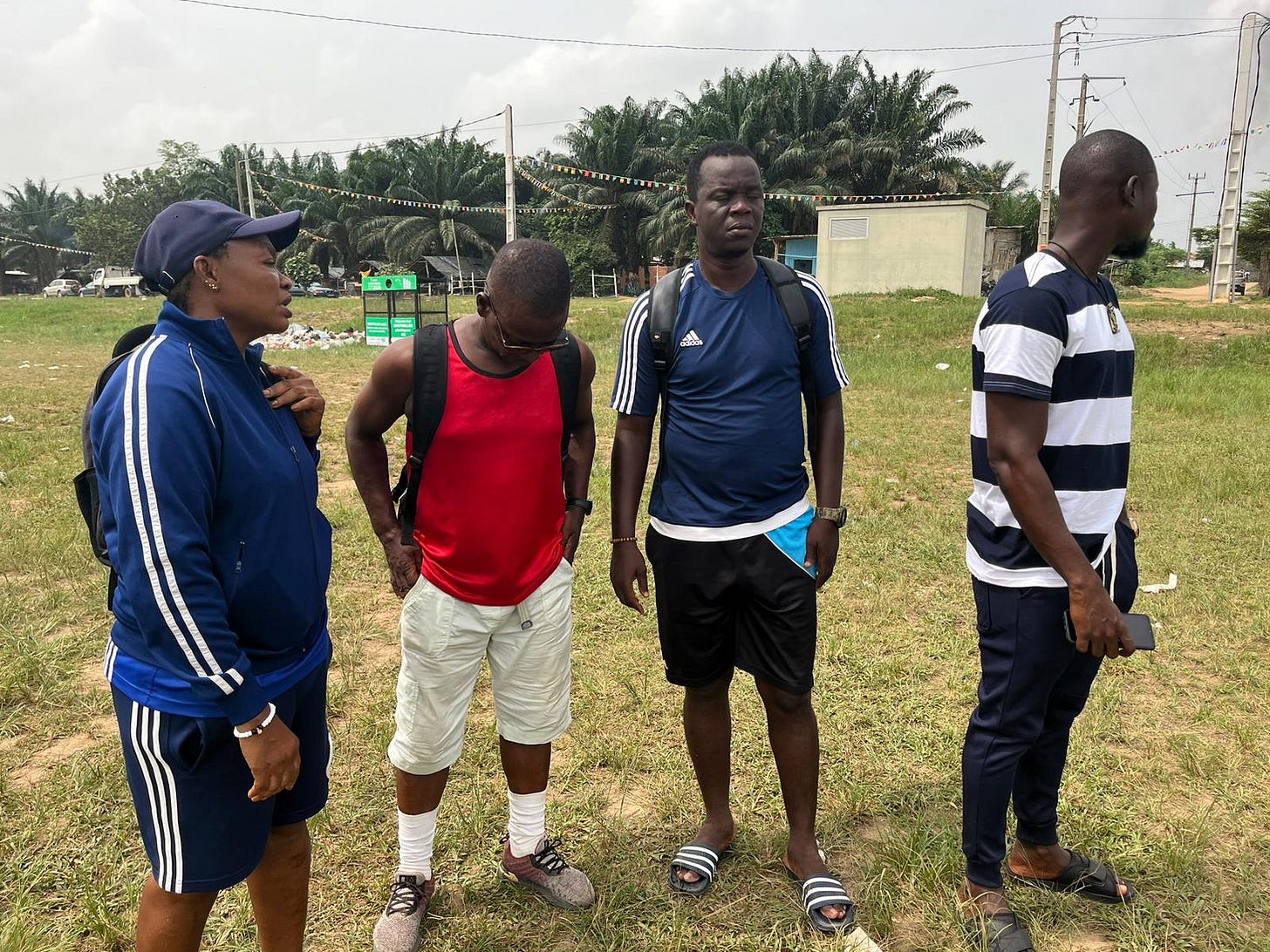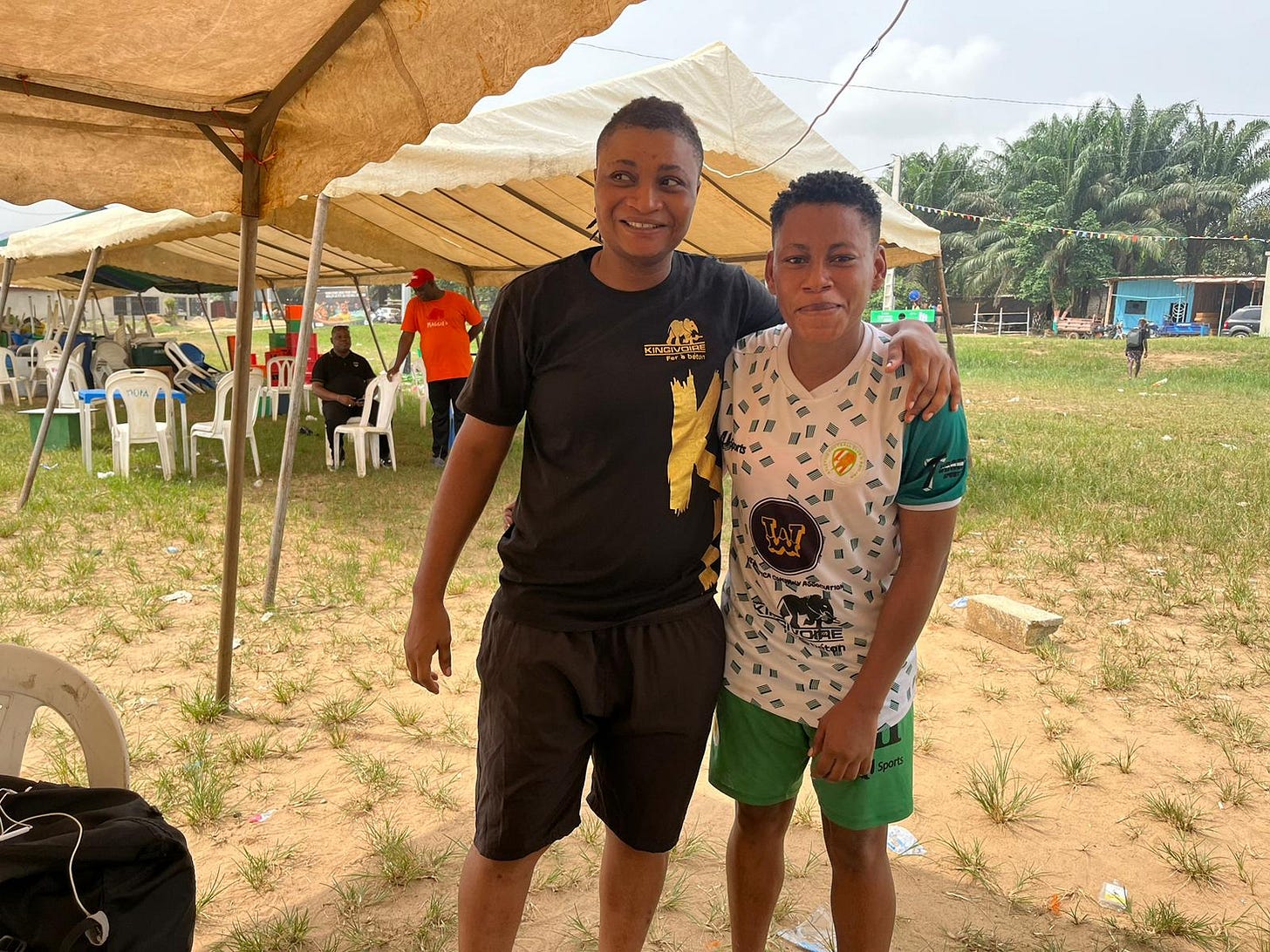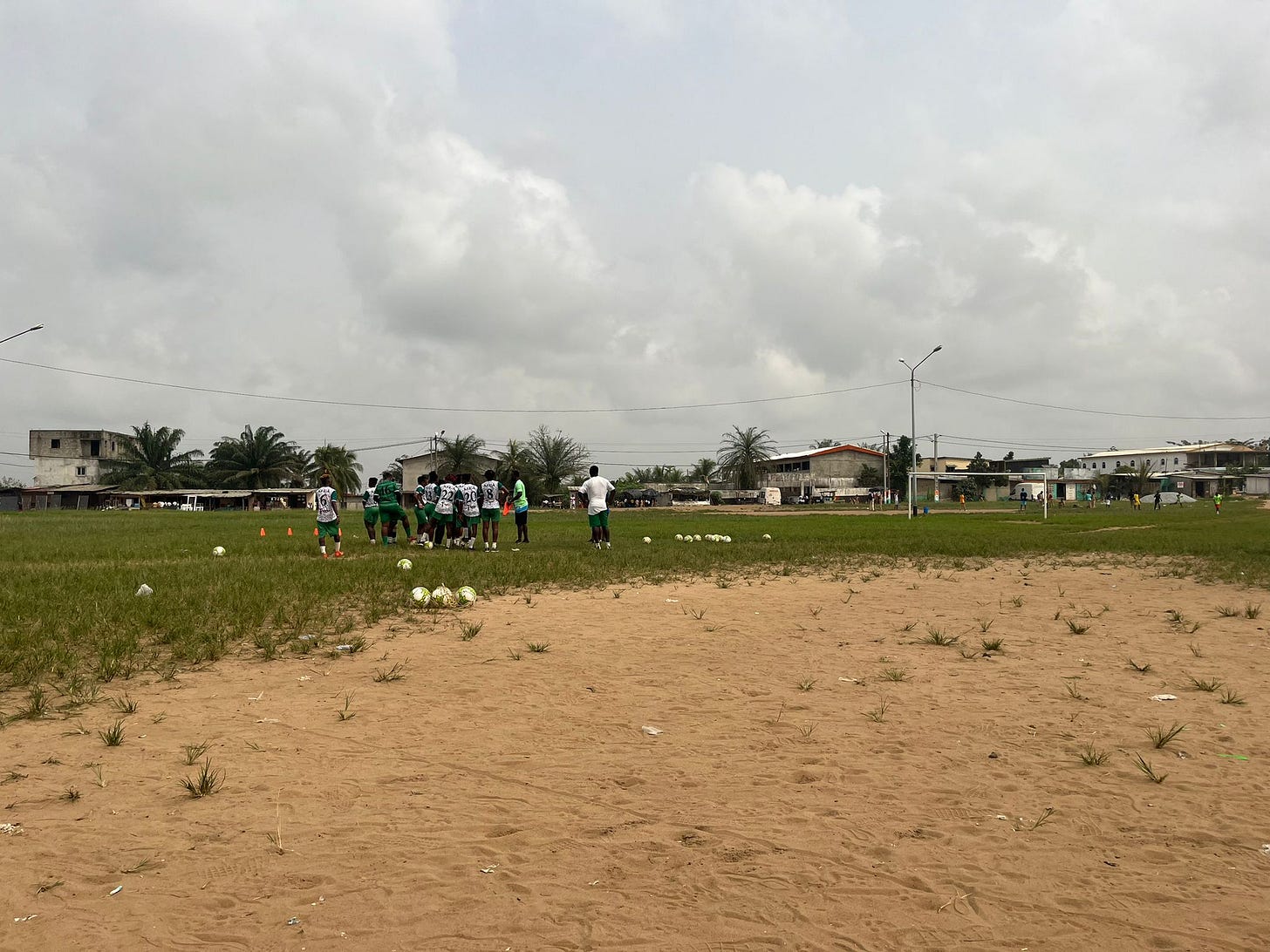Inside Athletico d'Abidjan: Côte d'Ivoire's trailblazing women's football club
How a team against all the odds stacked against women's football in Ivorian football has reached the top.
It’s been almost four weeks since the remarkable conclusion of the 2023 Africa Cup of Nations where Côte d’Ivoire lifted the trophy in the stunning Alassane Ouattara stadium in Ebimpé. It was a fitting end to a tournament that sparkled, stunned and inspired a nation, a continent and the world, and seemingly justified the more than one billion dollars invested in football.
Two kilometres away from the stadium on the Ebimpé municipal pitch it is a very different story for Althletico d’Abidjan, the Ivorian Féminin Ligue 1 champions.
Instead of a pristine stadium that has a virtual reality studio among it’s modern facilities, the pitch where Athletico trains is uneven, predominantly covered in sand and lacks any facilities. When I visited the club, they were only able to train using a quarter of the pitch, the rest of it taken up by a fan zone set up for the AFCON.
It’s the sad shadow of the AFCON that shone so bright. In the face of unprecedented investment in the men’s game, the women’s game in Côte d’Ivoire must settle for scraps. In fact, even the scraps aren’t available as the national women’s team had to pull out of Olympics qualifying tournament with the Ivorian Football Federation claiming that they don’t have the funds.
Like the small patches of grass amid the sand where they train, Athletico d’Abijan is providing a glimmer of hope amidst the desolate football landscape.
The club was founded in 2019 by Nigerian businessman and former footballer Abdul Olatunji who had been running a men’s team in Abidjan since 2005. With his men’s team still struggling to get out of the fourth tier after a decade of ownership, Olatunji realised the potential for success was much higher on the women’s side of the game and he founded the team in 2017.
But it wasn’t an easy start.
“We went 1.5 years without playing in a league because the league had been stopped,” he tells On The Whistle from the club offices in Ebimpé. “We spent almost 18 months with only training and in 2018 we played our first match in the second division.”
Thanks to his connections back in Nigeria and with the investment from his construction logistics and poultry farming companies, the team was able to recruit players from the more established Nigeria Women’s Premier League and they cruised to the title, winning every match.
“We have players that are on 90,000 CFA ($150), 100,000 ($166) and 150,000 ($249) [per month],” explains Olatunji.
Modest sums, but enough to allow the team to train four times a week and the players to play full-time, something that at the time no other team could boast.

Thanks to the COVID-19 pandemic, the team had another two year wait before they could play top-flight football but they have since gone from strength to strength. After coming third in the 2021 season, they have won back-to-back titles and in 2023 qualified for the CAF Women’s Champions League.
The CAF Champions League, itself only in its infancy is an annual competition held between eight teams over a couple weeks. Those teams play in regional tournaments featuring the champions of domestic leagues to qualify.
But with the 2023 edition being used as a test event for the AFCON, Athletico qualified as hosts. Within the space of four seasons, the team had risen from non-existence to playing in the pinnacle of African club football, something not lost on the team.
"When I heard it was here, I was so happy, club captain Joy Sunday told On The Whistle. “I was so happy to represent such a great country like Côte d'Ivoire in the Champions League and for people around the world to see me playing professional football."
Drawn in a group with the 2021 and inaugural Champions League winners Mamelodi Sundowns, Tanzanian champions JKT Queens and Sporting Club Casablanca, the Ivorians performed perhaps as expected. A credible draw with Casablanca was followed by a narrow 2-1 loss to JKT and a perhaps inevitable 3-0 drubbing by eventual champions Sundowns.
While their foray into continental club competition was a brilliant footballing experience for the players and coaching staff, it was a sobering one for Olatunji. With expectations high on the team to now attempt to qualify for the 2024 edition, unless it is held in Côte d’Ivoire again, the expenses of the tournament are prohibitive to say the least.
“All the teams that qualify get $100,000, if you qualify for the next round it's $200,000, if you come third you get $150,000. The money is not enough to cover our expenses,” says Olatunji. “We want to qualify but at the same time the expenses are too much.”
While that money is excellent when the furthest the team had to travel was to Korhogo in the north of the country, if the tournament is held elsewhere on the continent, the $100,000 wouldn’t cover the team’s travel expenses. And there is no financial support for the qualifying tournaments, meaning that if the team has to travel to Ghana or Nigeria for the qualifiers, they have to fully expense the trip themselves at a huge loss.
With only ten million CFA ($16,400) a year coming from the Ivorian Federation and no prize money (or even a trophy), clubs are very much on their own in financing continental forays.
But it is not all doom and gloom for women’s football in the country. The Women’s Champions League was the best attended edition of the tournament yet with fans turning out in numbers to support Côte d’Ivoire’s representatives.
“When we were playing the Champions League in Korhogo, people were surprised to hear that women were playing football,” laughs Olatunji, but by the end of the tournament, the club had sold out its first batch of replica shirts and had to order a re-stock.

And for the first time the team has proper competition.
Thanks to CAF’s new regulations requiring any club competing in continental competition to also have a women’s team, serial men’s champions ASEC Mimosas founded their own fully professional women’s team. Another club, Inter d’Abidjan, this year also turned professional giving the league a level of competition that the men’s side has almost never seen thanks to the dominance of ASEC Mimosas.
Thanks to the almost non-existent investment from the federation at a national level, the Ivorian national team is at it’s lowest point in decades, being knocked out of the 2024 Women’s AFCON qualifiers by Tanzania and failing to even field a team for the Olympic qualifiers.
“The way things are going, I don't know what will happen tomorrow. I hope in 5 years everything will change,” say Olatunji.
But that hasn’t stopped Olatunji from pushing forward. The club is in the process of acquiring land in Abidjan that will be turned into a proper training centre. Despite that instability, clubs like Athletico d’Abidjan are providing shoots of hope for women’s football in Côte d’Ivoire.




